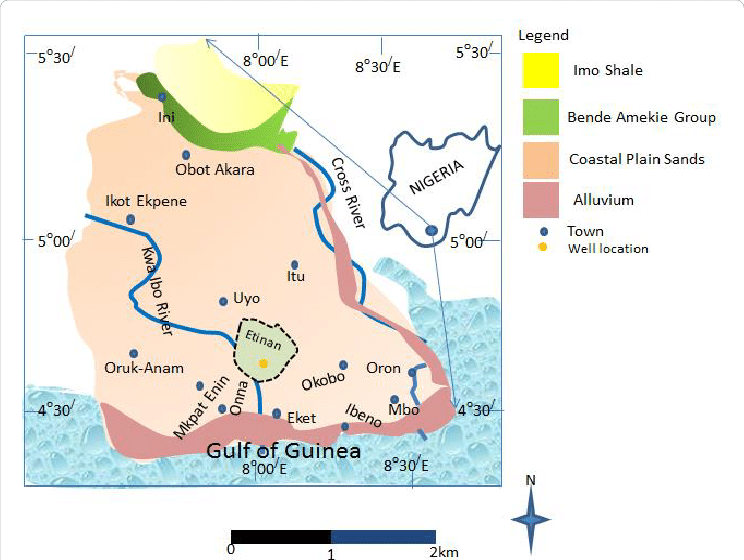By Okon Nnaetuk
It would be utopian to expect a human society to be perfect and in complete harmony. However a community is organized, whatever the structures in place, and the number of the rules established for its governance, there must be conflicts among members of a given community. The responsibility, therefore, of members of a community is to strive to resolve conflicts. To expect to resolve conflicts completely is also utopian.
Knowing that conflicts must be there, members of a community must learn to minimize the friction always resulting from the conflicts and create social cohesion for order. It is easy to manage the conflicts and the friction resulting therefrom when the community is homogeneous.
The problem becomes more difficult to handle when the community is segregated and heterogeneous and the underlying culture is not strong enough to bind the different segments of the community together.
I have always found it disturbing and worrisome how the two prominent tribes of Ibibio and Annang cannot truly live as one harmonious bloc and thus forge a strong, united sphere of influence in Nigeria.
I must confess that as a child in my village primary school and in my secondary school a few miles from home, I did not know the difference between Ibibio man and Annang man. The early missionaries arrived in what is now Akwa Ibom State through the coast and the Ibibio men and women had the benefit of western formal education very early.
They sailed with the white men up into the hinterlands of Annang and became the teachers and preachers in the schools and churches the missionaries established in Annangland. These teachers and preachers lived with us in our huts and hamlets. They taught us and preached to us. They also studied us and knew our culture which they wrote about in their reports and journals.
The question I always raise is: If the Ibibio man would not know and understand the Annang man whom he has lived with, who then would? Is it the Igbo man or Hausa man?
My grandfather had contact with Etubom Nelson (Elder Thomas Nelson of blessed memory) and other white missionaries of the Qua Iboe Mission (as it then was), and it was the Ibibio men who were the interpreters in trade and in church service. Most of the buildings in the area, including the churches with towers, were built by artisans and technicians from Ibibio who accompanied the white missionaries and colonial masters into the hinterlands of Annang.
I remember how in the seventies I would use my father’s bicycle to fetch water from well or river to supply to teachers and pastors in our village. That time teachers lived in quarters in the schools and some in apartments donated by wealthy villagers. Pastors lived in Mission houses. The teachers most often chose their house helps from the villages they lived.
I mention all these with emphasis to show the cordiality and social interaction that existed then. Most of the teachers chose their wives from the area. When stories are, therefore, told of how wicked and hostile the Annang people are, I go back to elders in my community to ask how many teachers and preachers of Ibibio origin were killed during their stay and work life in Annang land.
I don’t know how and when it all began that the mistrust is assuming a wider dimension now more than ever. If the Annang man would not be understood by his closest neighbour, who had lived with him since the era of Elder Thomas Nelson, who then would understand him?
Our grandfathers used to trek from the hinterlands to the coastal areas to sell and buy wares and they made friends across the land in the course of their trade. The people inter-married a lot as they still do now.
What then is, and why, this misunderstanding and division among a people who were one when Samuel Bill and other missionaries arrived the Qua Iboe River mouth and sailed up into the hinterlands spreading the gospel and sowing seed of unity? How come the people that are largely members of the same churches, Qua Iboe Church, Methodist Church, The Catholic Church, The Apostolic Church, The Lutheran Church, The Church of Christ, you name them, cannot live in harmony, or, at least, manage the rough edges and friction of conflicts as a people with a past and history?
It is disheartening and disturbing that instead of consolidating on what our forebears achieved, we are rather busy dissipating our energy on tearing the State apart and making mockery of the concept and objective of Ibibio State project which other tribes in Nigeria were even eager to copy. That project established Ibibio State College (now State College) in Ikot Ekpene and sent prominent sons of the area cutting across Ibibio, Annang and Oron, to study on scholarship abroad.
In the face of diverse challenges facing Nigerian state, there is need for all the tribal groups in Akwa Ibom State to forge a common front and foster a sense of togetherness by rekindling the torch of unity ignited by our forebears to achieve development and attain greatness for the state and the country at large.
Nnaetuk, renowned accountant, writes from Uyo

